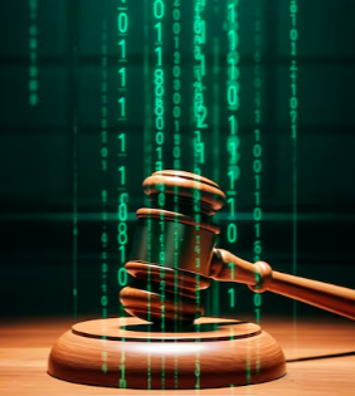Article by Clyde Shuman
The U.S. Supreme Court has ruled that individual state governments cannot be sued for copyright infringement. In Allen v. Cooper, case number 18-877, Justice Kagan, writing for a unanimous Court, referred heavily to the Court’s earlier opinion in Florida Prepaid Postsecondary Ed. Expense Bd. v. College Savings Bank, 527 U. S. 627 (1999), where the Court held that a Congressional statute seeking to strip sovereign immunity from patent and copyright suits lacked a valid constitutional basis. Per Judge Kagan, that decision compelled the same conclusion in the copyright infringement context.
By way of (colorful) background, a French slave ship captured by Edward Teach (Blackbeard) and renamed Queen Anne’s Revenge, ran aground a mile off Beaufort, North Carolina, in 1718, Teach and most of his crew escaping without harm. The shipwreck was discovered by a marine salvage company in 1996. Under federal and state law, the wreck belongs to North Carolina. North Carolina contracted with the salvage company to take charge of recovery, and the salvage company retained Allen, a local videographer, to document the operation. Allen spent more than a decade creating videos and photos related to the recovery, including materials salvaged. He registered copyrights in all those works.
In 2013, Allen claimed North Carolina was infringing his copyrights by publishing some of his works on its website without permission. The State agreed to settle for $15,000 and laying out the parties’ respective rights to the materials. A second dispute followed, with Allen complaining that North Carolina had impermissibly posted five of his videos online and used one of his photos in a newsletter.
Allen sued for copyright infringement in district court. The State moved to dismiss on sovereign immunity grounds. Allen countered that an exception to the rule applied because Congress had abrogated the States’ sovereign immunity from suits like his, citing the Copyright Remedy Clarification Act of 1990 (CRCA). Under the statute, a State “shall not be immune… from suit in Federal court” for copyright infringement. In such a suit a State will be liable, and subject to remedies, “in the same manner and to the same extent as” a private party.
The district court agreed with Allen. The court acknowledged that Florida Prepaid and other precedent precluded Congress from using its Article I powers to limit a state’s sovereign immunity. However, per the district court, given North Carolina’s “pattern” of “abus[ive]” copyright infringement, Congress could accomplish its object under Section 5 of the Fourteenth Amendment.
On interlocutory appeal, the Court of Appeals for the Fourth Circuit reversed, reading Florida Prepaid to prevent recourse to Section 5 no less than to Article I. Florida Prepaid had applied the same principle to reject Congress’s attempt, in the Patent Remedy Act, to abolish the States’ immunity from patent infringement suits. In the Fourth Circuit’s view, nothing distinguished the CRCA.
At the Court, Justice Kagan began by noting the general principle of sovereign immunity from litigation but noting the two conditions allowing for such suits: first, Congress must have enacted “unequivocal statutory language” abrogating the States’ immunity from the suit. Second, some constitutional provision must allow Congress to have thus encroached on the States’ sovereignty.
The issue here was not clarity of language, but whether Congress, via the CRCA, had the authority to remove the States’ immunity to copyright infringement suits. The Court found that Florida Prepaid, and other precedent, foreclosed each of Allen’s arguments for such Congressional power, viz., the clause in Article I empowering Congress to provide copyright protection and Section 5 of the Fourteenth Amendment, which authorizes Congress to “enforce” the commands of the Due Process Clause.
With respect to Article I, the Court noted that the Intellectual Property Clause covers copyrights and patents alike, and thus was the first place the Florida Prepaid Court looked when deciding whether the Patent Remedy Act validly stripped the States of immunity from infringement suits. In doing so, the Court acknowledged the reason for Congress to put “States on the same footing as private parties” in patent litigation. However, the Court held Congress could not use its Article I power over patents to remove the States’ immunity. Because Congress could not “abrogate state sovereign immunity [under] Article I,” Florida Prepaid explained, the Intellectual Property Clause could not support the Patent Remedy Act. The Court extended the point to copyrights: “Here too, the power to ‘secur[e]’ an intellectual property owner’s ‘exclusive Right’ under Article I stops when it runs into sovereign immunity.”
The Court distinguished the holding in Central Va. Community College v. Katz, 546 U. S. 356 (2006), holding that Article I’s Bankruptcy Clause enables Congress to subject nonconsenting States to bankruptcy proceedings (to recover a preferential transfer). The Court here found that everything in Katz is about and limited to the Bankruptcy Clause; “‘it does not implicate States’ sovereignty to nearly the same degree as other kinds of jurisdiction.’” The Court referred to the Bankruptcy Clause as “sui generis…among Article I’s grants of authority.”
In any case, the Court in Katz found that the Bankruptcy Clause itself did the abrogating. No congressional abrogation was needed. The Court here said that Katz “viewed bankruptcy as on a different plane, governed by principles all its own… [I]t points to a good-for-one-clause-only holding.”
The Court also rejected Allen’s Fourteenth Amendment argument, noting that for an abrogation statute to be “appropriate” under Section 5, it must be tailored to “remedy or prevent” conduct infringing the Amendment’s substantive prohibitions. Per the Court, while Congress can permit suits against States for actual violations of the rights guaranteed in Section 1, it cannot use its “power to enforce” the Fourteenth Amendment to alter what that Amendment bars. “That means a congressional abrogation is valid under Section 5 only if it sufficiently connects to conduct courts have held Section 1 to proscribe.”
The Court discussed the means-end test for when a law passes muster, including “[t]here must be a congruence and proportionality between the injury to be prevented or remedied and the means adopted to that end.” A critical question here was how far, and for what reasons, Congress has gone beyond redressing actual constitutional violations.
Reducing the matter to its essence, Justice Kagan wrote, “All this raises the question: When does the Fourteenth Amendment care about copyright infringement? Sometimes, no doubt. Copyrights are a form of property. And the Fourteenth Amendment bars the States from ‘depriv[ing]’a person of property ‘without due process of law.’ But even if sometimes, by no means always. Under our precedent, a merely negligent act does not “deprive” a person of property.” Further, a cannot violate that Clause unless it fails to offer an adequate remedy for an infringement, because such a remedy itself satisfies the demand of “due process.” The Court thus found that “within the broader world of state copyright infringement is a smaller one where the Due Process Clause comes into play.”
Per the Court, “Because the same is true of patent infringement, Florida Prepaid again serves as the critical precedent.” In the Fourteenth Amendment/Section 5 context, the Court noted that the Patent Remedy Act, done away with by Florida Prepaid, abrogated sovereign immunity for any and every patent suit, thereby “plac[ing]States on the same footing as private parties.” It did not confine abrogation to suits alleging “nonnegligent infringement or infringement authorized [by] state policy,” nor did it target States refusing to offer alternative remedies to patent holders. The Florida Prepaid Court found the Patent Remedy Act did not “enforce” Section 1 of the Fourteenth Amendment—and so was not “appropriate” under Section 5.
Per the Court here, the same result was called for with respect to the CRCA. The Court referred to a report by the then-Register of Copyrights, on the effects of the Eleventh Amendment on copyright enforcement, but found that nothing in the report, or the rest of the legislative record, cured the problems identified in Florida Prepaid. The Register found only a dozen possible examples of state infringement and acknowledged that state infringement is “not widespread” and “the States are not going to get involved in wholesale violation of the copyright laws.”
Per the Court, “it gets only worse.” The Court found that neither the Report nor any other part of the legislative record shows concern with whether the States’ copyright infringements violated the Due Process Clause. The Court said, “Those deficiencies in the record match the ones Florida Prepaid emphasized. Here no less than there, they signal an absence of constitutional harm. Under Florida Prepaid, the CRCA thus must fail our “congruence and proportionality” test.”
The Court left open the possibility for Congress to pass a valid copyright abrogation law in the future. “In doing so, Congress would presumably approach the issue differently than when it passed the CRCA. At that time, the Court had not yet decided Seminole Tribe, so Congress probably thought that Article I could support its all-out abrogation of immunity. And to the extent it relied on Section 5, Congress acted before this Court created the ‘congruence and proportionality’ test.”
Justice Thomas wrote separately, concurring in part and concurring in the judgment. Of note, he wrote that “I believe the question whether copyrights are property within the original meaning of the Fourteenth Amendment’s Due Process Clause remains open.” He distinguished the holding in Fox Film Corp. v. Doyal, 286 U. S. 123 (1932), saying Fox Film Corp. addressed “property” in the context of state tax laws, not the Due Process Clause. He likewise rejected the Court’s reliance on Florida Prepaid, saying that the Court there did not analyze the Fourteenth Amendment’s text, and neither of the cases cited involved due process.



